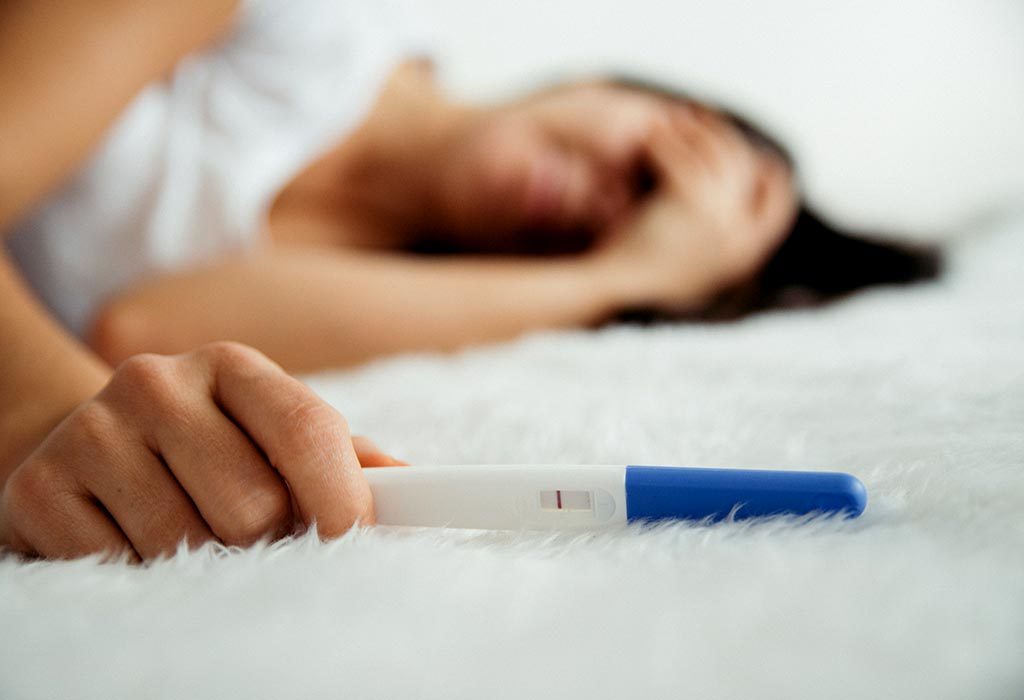In this Article
If you’re trying to get pregnant, you may have come across the terms ‘FSH level’ or ‘follicle stimulating hormone level’ from your fertility specialist. This hormone is responsible for ovulation, ensuring that the egg is released from the ovaries for fertilisation. Having proper FSH levels means that you’re viable for pregnancy and have higher chances of conceiving a healthy baby.
High FSH levels are a cause for concern among women, and here’s everything you need to know about FSH levels to get pregnant.
What Is Follicle Stimulating Hormone (FSH)?
Follicle Stimulating Hormone (FSH) is a hormone that is responsible for causing ovulation in women. All women, during their menstrual cycles, experience an above-baseline FSH level, which is a good indicator of being able to get pregnant. Older women have higher FSH levels due to ovarian maturing since an ‘older’ ovary requires more stimulation for its egg follicles. Thus, FSH levels rise with age. Women who experience PCOS (‘Polycystic Ovary Syndrome’) have low FSH levels and either ovulate erratically or do not ovulate at all.
What Is the Normal FSH Level to Get Pregnant?
Normal FSH levels in women for pregnancy range between 4.7 and 8 IU/L during menstrual cycles. These levels take into consideration that you aren’t on any birth control pills or similar medications 4 weeks prior to the FSH Level testing at the clinic.
What Causes High FSH Levels?
High FSH levels in women are linked to the reasons below.
1. High Maternal Age
Late pregnancies are getting more common around the world as women are seemingly getting pregnant after 35. The ability of a woman to conceive deteriorates slightly in her 30s, and it becomes incredibly tough to get pregnant in her 40s. As a woman ages, her FSH levels begin to elevate in an attempt to produce viable eggs. At each menstrual cycle, you lose some eggs from the finite number of eggs you have in your body. More FSH is required to stimulate ovulation as a woman ages till she reaches a point where elevated FSH levels no longer work and are unable to assist with ovulation.
2. Inferior Quality of Eggs
Inferior quality of eggs in women is another cause of infertility and high FSH levels. This results from health problems, lack of proper nutrition, endometriosis, radiation therapy, and chemotherapy. The inferior quality of eggs leads to a woman’s FSH levels to rise, which is a typical response from the body in an attempt to improve their quality. Young women are also susceptible to this condition.
3. Premature Ovarian Failure
When the ovaries are damaged and a woman is unable to produce eggs before the age of 32, the brain sends a message to the pituitary gland to raise FSH levels for stimulating egg production. FSH level symptoms, in this case, are similar to those who experience menopause and the FSH levels keep rising as a result of the lack of production of eggs.

Follicle Stimulating Hormone (FSH) Test
FSH is present in both men and women. Your doctor may do a series of tests to get the levels checked in conjunction with other hormone tests like estrogen testing, testosterone sampling and luteinizing hormone testing. The doctor may suggest estradiol and AMH level tests.
1. When Are FSH Levels Checked?
In a healthy ovulating woman, FSH levels are checked on Day 3 of the menstrual cycle, alongside two other tests – the luteinizing hormone (LH) test and estradiol testing.
2. Why Is an FSH Test Needed?
An FSH test is needed in both men and women for the following reasons:
- To assess if the ovaries are damaged and if the woman has PCOS
- To check for Erectile Dysfunction (ED) and low sperm count in men
- To diagnose hypogonadism
- To determine precocious puberty or delayed puberty in kids
- To check whether menstrual cycles are regular or irregular
- To diagnose any disorders or diseases of the pituitary gland
3. Types of Tests
Types of FSH (Follicle Stimulating Hormone) tests for men and women are:
- Urine Test – Your doctor may ask for multiple urine samples throughout a period of 24 hours for testing the FSH levels in your body.
- Blood Test – Blood work is done by injecting a needle into a vein on your arm. It may sting a little and you may experience bruising, but blood work is necessary for an FSH blood test.
- Other Tests – Other tests involved alongside FSH testing are testosterone, estrogen, luteinizing hormone and estradiol tests.
Your doctor will tell you and your partner to get an FSH test done under the following conditions:
- If you have irregular periods
- If you are over 35 (to rule out perimenopause or menopause)
- If you have problems getting pregnant despite trying for a long time
- If you have a pituitary gland or hypothalamus disorder
FSH and Ovarian Reserve
Your ovarian reserve is the number of eggs you have in your ovaries. Think of them like eggs in a basket – the more you have, the greater are the chances of finding high-quality ones. Although some women may have a higher number of eggs, the quality isn’t necessarily all good, which is important to remember. Ovarian reserve testing is common in women to check for fertility issues during menstrual cycles. The three common types of ovarian reserve tests available are – FSH Tests, Antral Follicle Count (AFC) test, and Anti Mullerian Hormone (AMH) test.
- Antral Follicle Count (AFC) Testing – This is an ultrasound test that counts your antral follicles. This test is not always accurate due to it being very technically-dependent. However, the ideal AFC is 15-20 for the two ovaries in women.
- Anti Mullerian Hormone (AMH) – A newer blood test that is more accurate than AFC testing, AMH is a type of hormone that contributes to the growth of antral follicles. The more antral follicles you have, the higher your AMH levels are since they are correlated. Regular blood testing reveals AMH levels in your body during menstrual cycles.
- FSH Testing – FSH levels higher than 12 are a cause of worry for women, but it is important to keep in mind that these levels change on a monthly basis due to changes in the number of antral follicles in women. If your estradiol levels are <200pmol/l, your FSH levels will be accurate in determining the quality and health of your ovarian reserve.
Ovarian reserve tests do not tell the entire story of the chances of conception and successful pregnancy, but they are helpful guides that are used to optimise lifestyle choices for treating infertility issues in women.
FSH and Menopause
If your follicle-stimulating hormone (FSH) levels are consistently peaking at 30 IU/mL or higher, you have been approaching or have likely already reached menopause. This will usually accompany the fact that you haven’t had a menstrual period for an entire year. Clinicians sometimes recommend saliva testing in conjunction with tests like AFC and AMH to confirm menopause since FSH alone isn’t enough to confirm whether you have reached menopause. Baseline FSH levels increase when women reach perimenopause which indicates that a lower amount of eggs are left. Perimenopause lasts 4 years, and a woman enters menopause within 12 months from the date she hasn’t had her last period.
The numbers in your FSH level test may vary at times – they may be misleading if you are on birth control pills and other prescription drugs prior to testing. FSH testing is invalid if you’re on certain hormonal therapies as well, and if you suspect that you’re in perimenopause, you should get a complex medical examination done at the clinic or hospital.

What Are the Chances of Getting Pregnant With High FSH?
High FSH levels reduce your chances of getting pregnant and are good indicators of chromosomal abnormalities. Getting pregnant is tough and sometimes even impossible for those who have consistently high FSH levels, and an egg donation treatment becomes the only viable choice for a healthy baby and a pregnancy. If you are experiencing high FSH levels during the early stages of your menstrual cycle, it could be an indicator of ovary failure, reduced fertility, poor quality eggs, or decreased implantation rates.
Keep in mind that FSH levels of 15 and above are considered high and anything below 9.5 is the optimal FSH range for fertility and pregnancy. There have been cases where women were able to experience high FSH levels and successful pregnancy, although those are in the minority.
How to Lower Your High FSH Levels
If you’re trying to lower your FSH levels, we’ve got good news for you. There is still time and there are ways you can safely lower them naturally. Here are a few ways you can do that:
1. Eat Sea Vegetables and Dark Greens
Sea vegetables like kelp, nori and wakame contain large amounts of iodine and essential fatty acids that are crucial for optimum endocrine health. Try eating these with salads and sushi, or make vegetable rolls out of them. If you don’t get sea vegetables where you live, you may consider using supplements. Kelp supplements are especially popular due to their high iodine content.
2. Take Bee Pollen
High in nutrient density, bee pollen is loaded with minerals, proteins, vitamins, and immune-healthy compounds. Bee pollen is also available in supplement form.
3. Consume Superfoods
A rich source of protein that is packed with important minerals like magnesium and potassium, spirulina is one among nature’s superfoods and makes the list of foods best for endocrine health. Other superfoods you could try are chlorella, moringa and chia seeds. Nutrition manufacturers these days sell superfood blends which include green blends of spirulina, wheatgrass, barley grass, chlorella, acai berry, stevia, and others. However, it’s best to consult a doctor before consuming anything you are not used to.

4. Consider Fertility Massages
Fertility massages balance the hormones and control their production by providing stress relief through the massaging of the ovaries. The liver is massaged as well, and communication between the pituitary, hypothalamus and ovaries are enhanced.
5. Try Acupuncture
Acupuncture is very effective in treating hormonal imbalances and normalising FSH levels when combined with proper nutrition. Auricular acupuncture is the most preferred method of treatment and cures disorders related to the autonomic nervous system.
6. Maintain a Healthy Weight
Being overweight, underweight, or obese leads to fertility issues in women and affects FSH levels. Focus on moving towards a healthy weight and get proper nutrition for best results. You don’t just want to be at the proper weight range according to your height; you also have to make sure you’re getting your nutrients.

7. Try Relaxation and Stress Reduction
Yoga, meditation, art, prayer, and other stress-relieving or ‘grounding’ activities are perfect for lowering stress levels, and subsequently, your FSH levels. Other stress-reduction therapies you could try are qi gong and tai chi. Participate in dance classes, socialise with friends and enjoy an active lifestyle. Less stress is a major indicator of a healthy hormonal system and is not only good for your FSH levels, but for your life too. Improve your quality of life by making the necessary diet and lifestyle tweaks, and you’ll experience normal FSH levels in no time.
8. Lower Blood Sugar Levels
Optimum blood sugar levels help with estrogen production and the balancing of FSH levels in the body. Lowered blood sugar levels contribute to stronger embryos and proper nourishment of the developing follicles in the ovaries. Get your blood sugar levels tested regularly, and consume foods that do not have too much sugar or a high glycemic index (GI). Talk to your doctor about what these fruits and veggies are, and incorporate them into your diet.
9. Herbs
Herbs like maca, American ginseng and other adaptogen-herbs are effective in normalizing estrogen levels in the body. Men and women who consume maca and American ginseng have experienced an increased libido, a healthy sperm count and proper estrogen levels, all of which are essential for normal FSH levels and healthy pregnancy. You can try Chinese herbs as well, as they are known to nourish the spleen, kidneys and liver, all of which are responsible for optimal reproductive health.

Other options you could consider if you have high FSH levels are in-vitro fertilization and intrauterine insemination (IUI) in conjunction with stimulating your ovaries by raising FSH levels by methods recommended by a fertility specialist. These involve injectable medications like Gonal-f, Follistim and Bravelle. Your last resort will be looking for an egg donor if things look bleak.
If you eat healthy, live stress-free and get your daily dose of nutrition, there’s no reason why you cannot have a healthy pregnancy. Don’t let high FSH levels deter you from having a pregnancy and give your body the necessary time to recuperate, heal, and normalise them. It takes time; and as the saying always goes – ‘better late than never.’
Consult with your clinic or doctor regarding what else you can do if you’re having problems conceiving even after following the above advice, nutrition guidelines, and lifestyle tips.
Resources and References: WebMD







